Comparing lengths Measurement Worksheets for Ages 3-9
14 filtered results
-
From - To
Welcome to our "Comparing Lengths Measurement Worksheets" for children aged 3-9! These engaging worksheets are designed to help young learners develop essential measurement skills by comparing lengths in a fun, interactive way. With a variety of activities that include colorful visuals and relatable examples, kids will explore the concepts of longer, shorter, and equal lengths. Our carefully crafted exercises cater to different skill levels, ensuring every child can enhance their understanding of measurements. Perfect for classroom use or at-home learning, these worksheets make math enjoyable and support early childhood education goals. Dive in to create a solid foundation in measurement today!
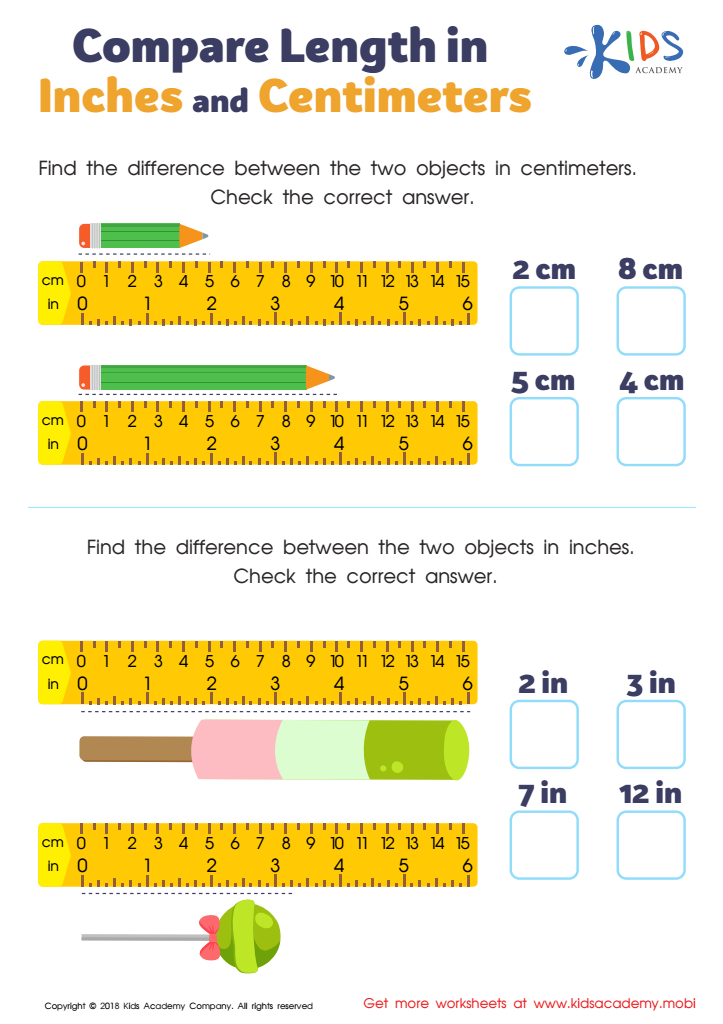

Compare Length in Inches and Centimeters Worksheet
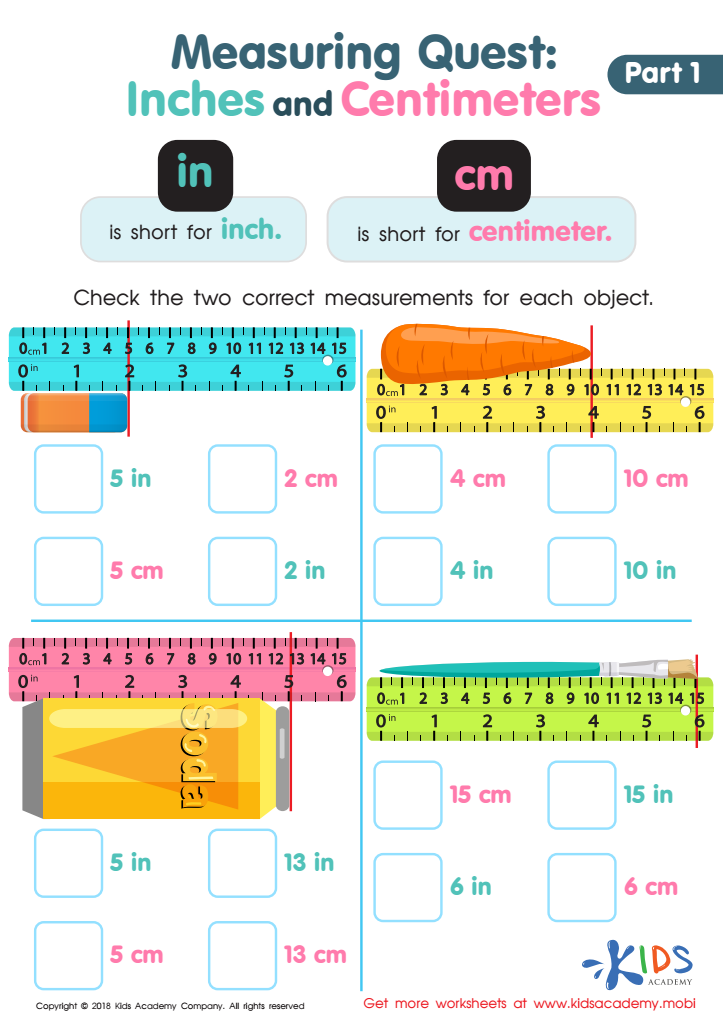

Measuring Quest: Inches and Centimeters Worksheet
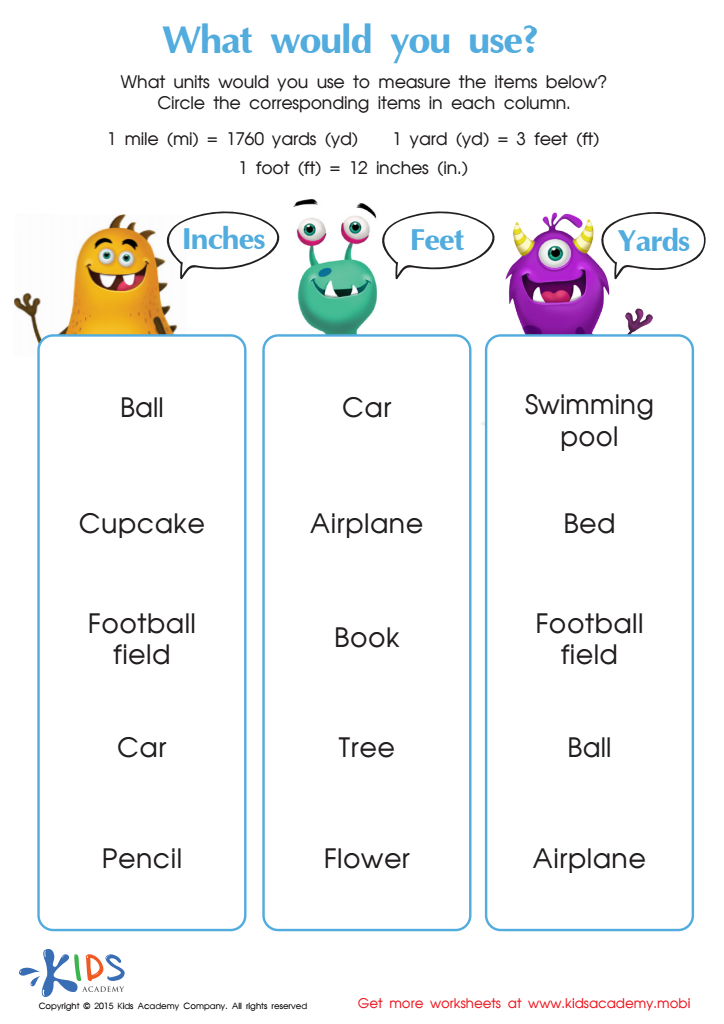

Learning about measuring objects in inches, feet and yards Worksheet
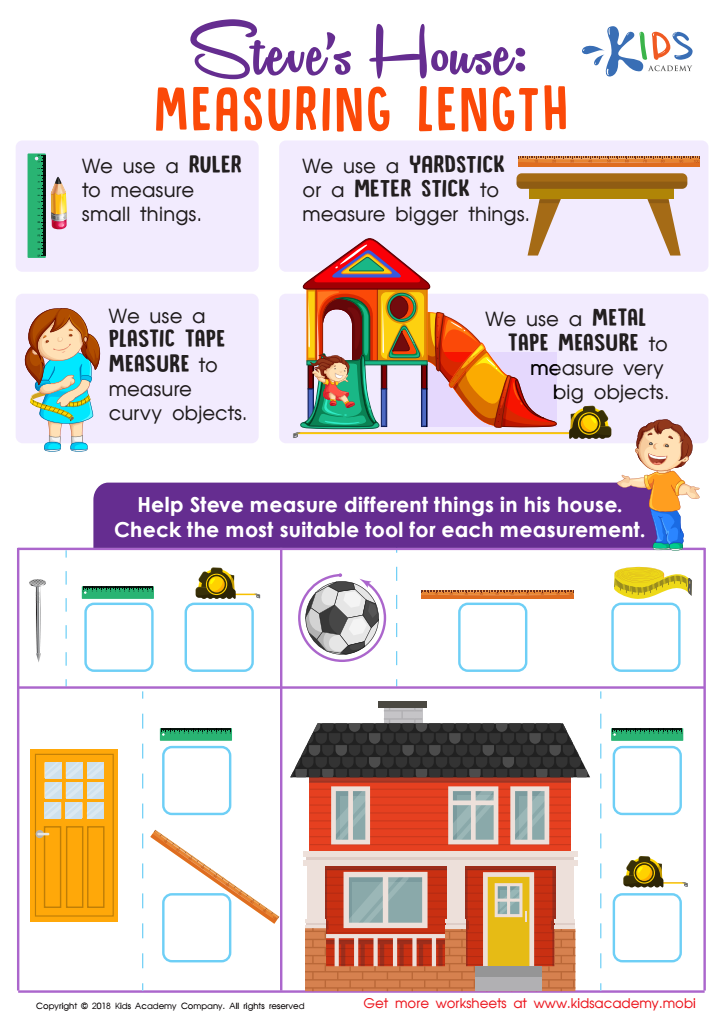

Steve's House: Measuring Length Worksheet
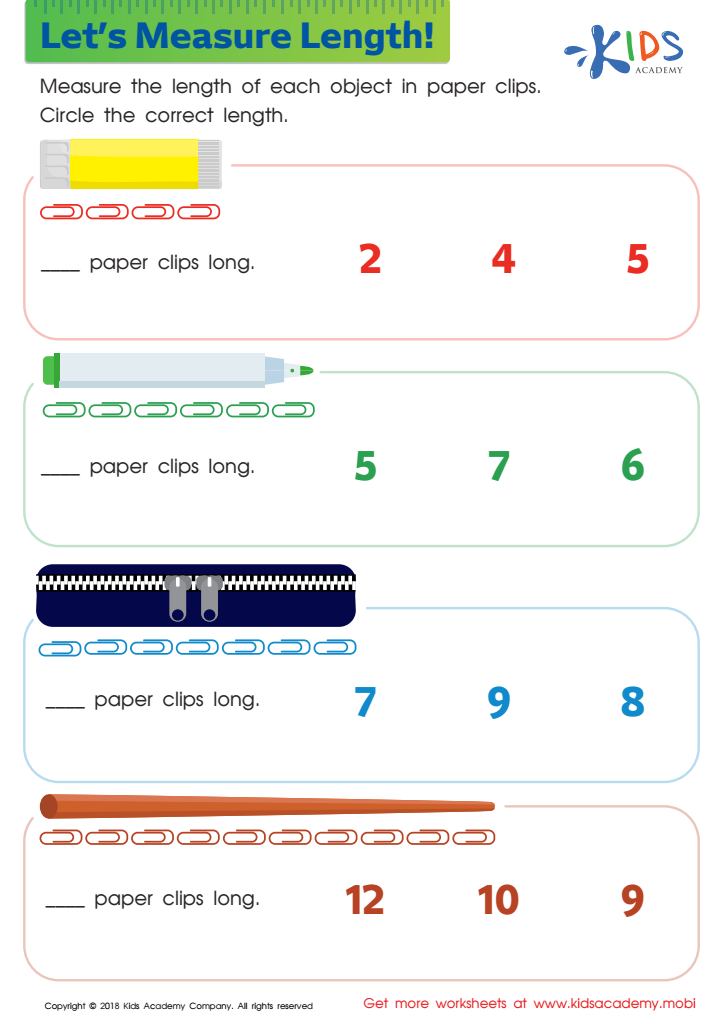

Lets Measure Length Worksheet
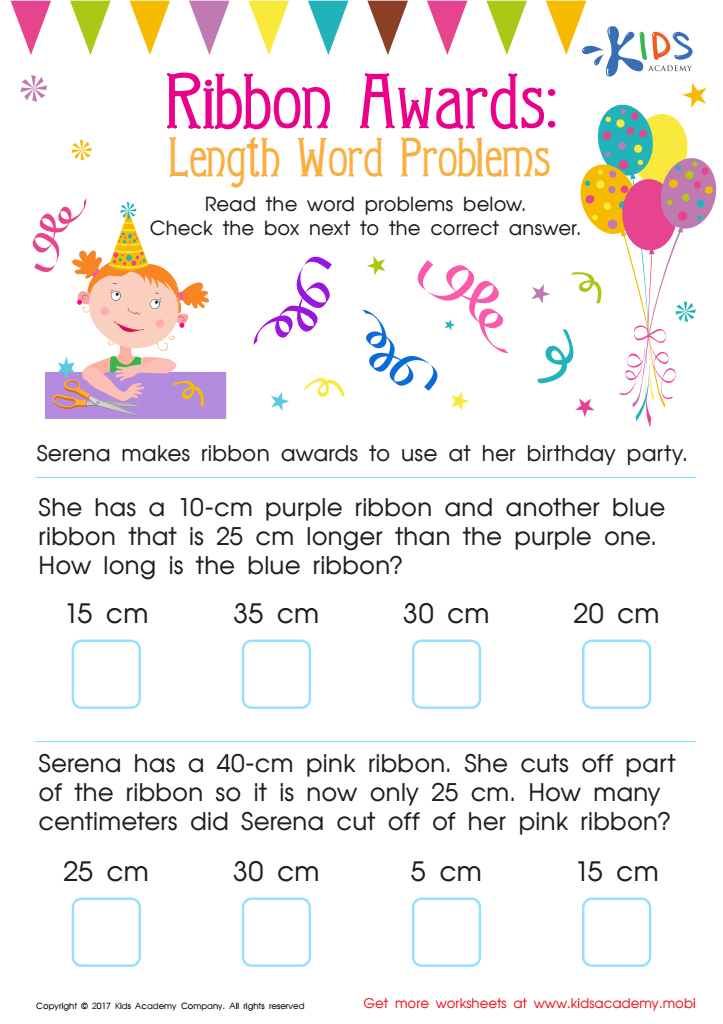

Length Word Problems Worksheet
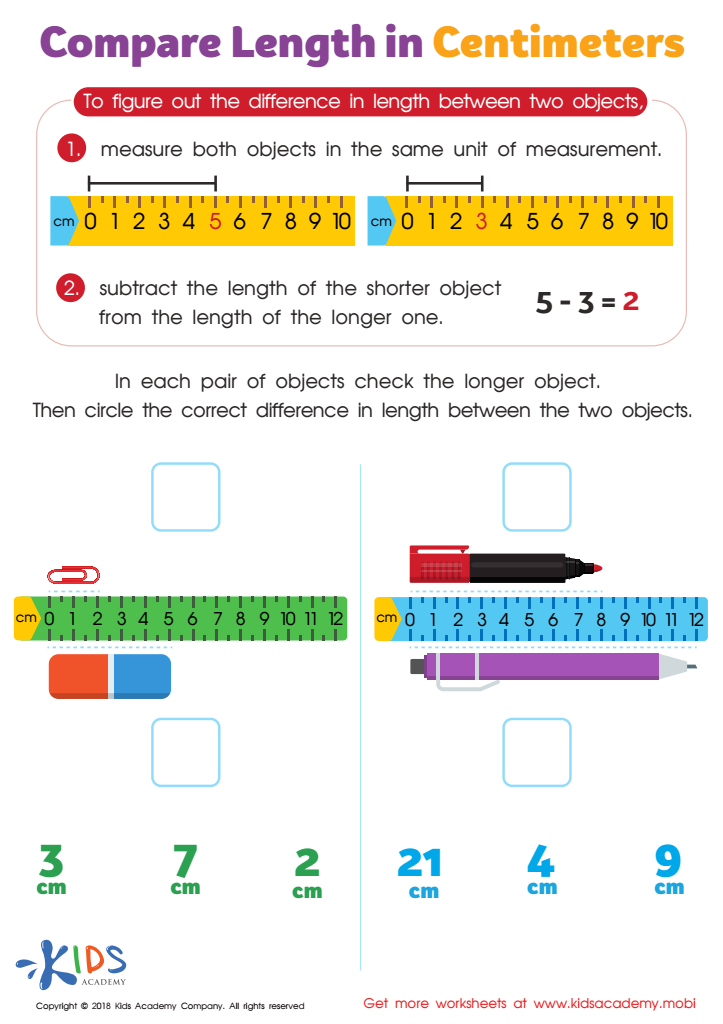

Compare Length in Centimeters Worksheet
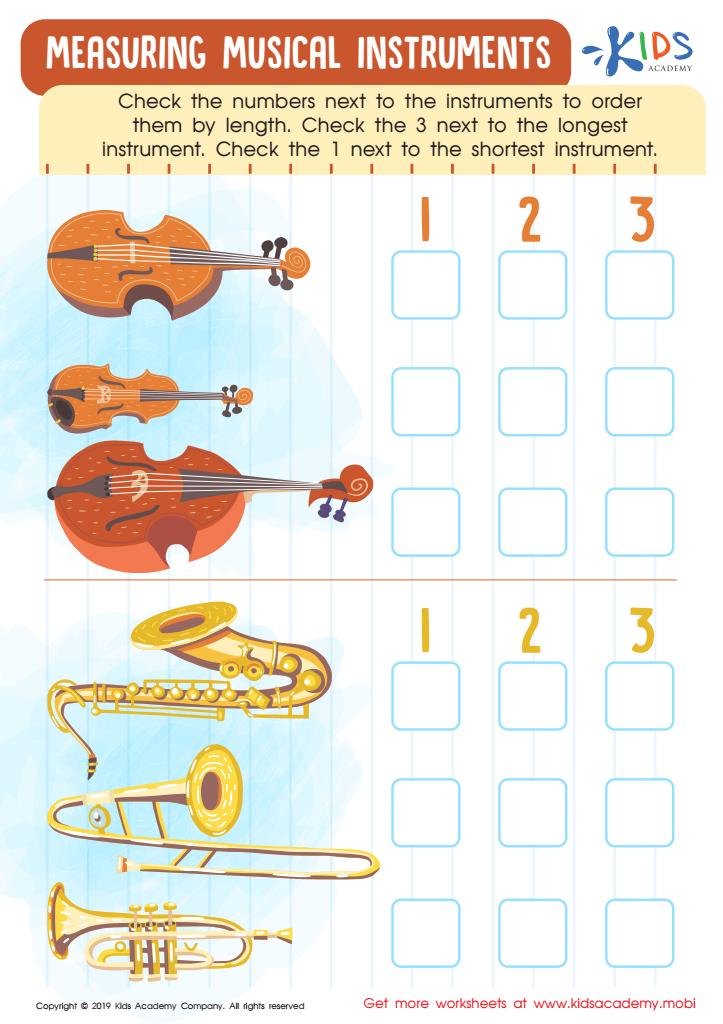

Measuring Musical Instruments Worksheet
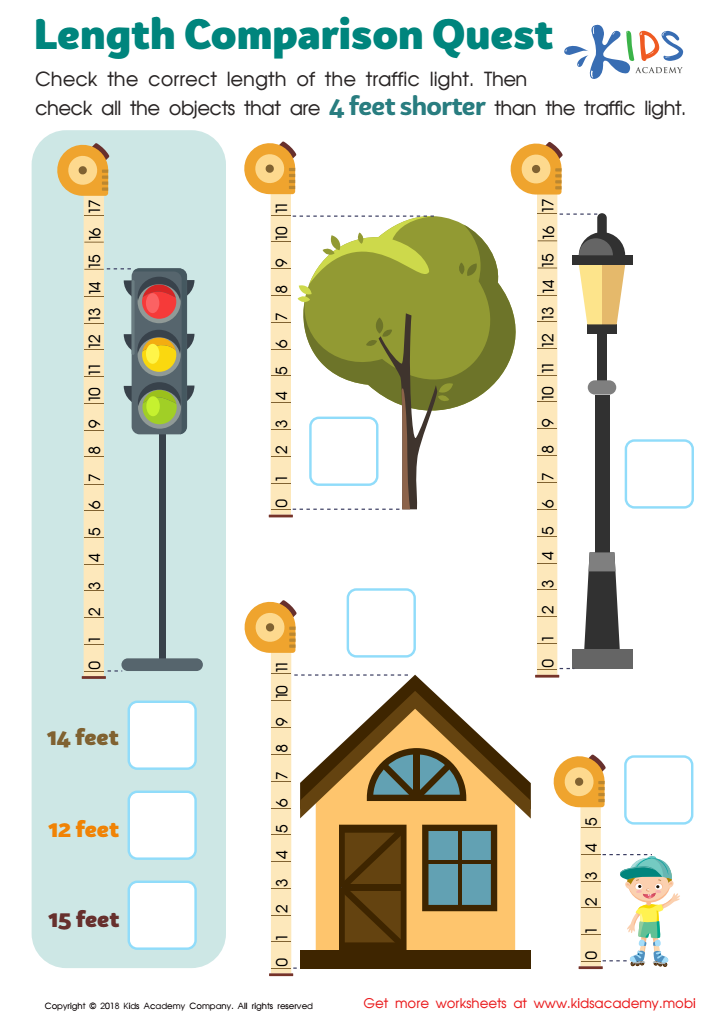

Length Comparison Quest Worksheet
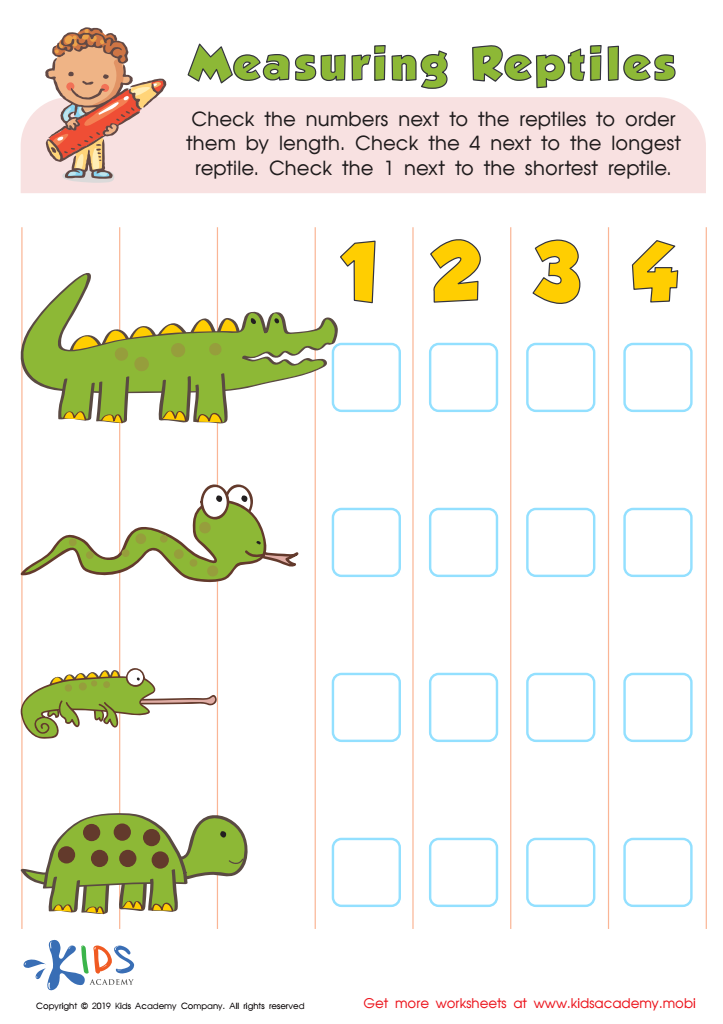

Measuring Reptiles Worksheet
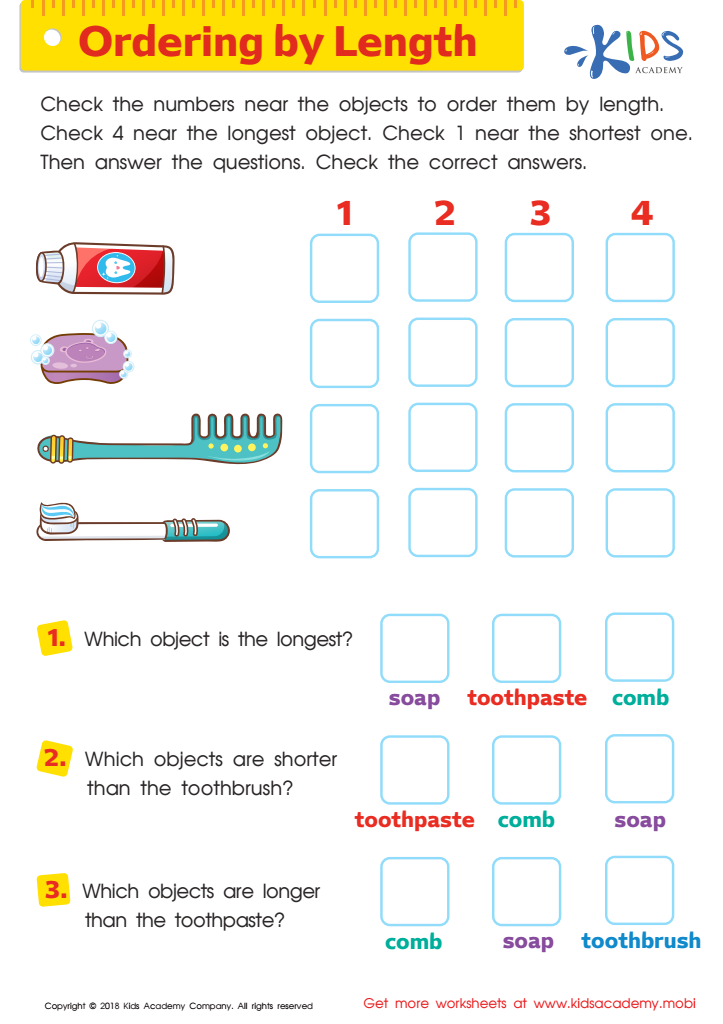

Ordering by Length Worksheet
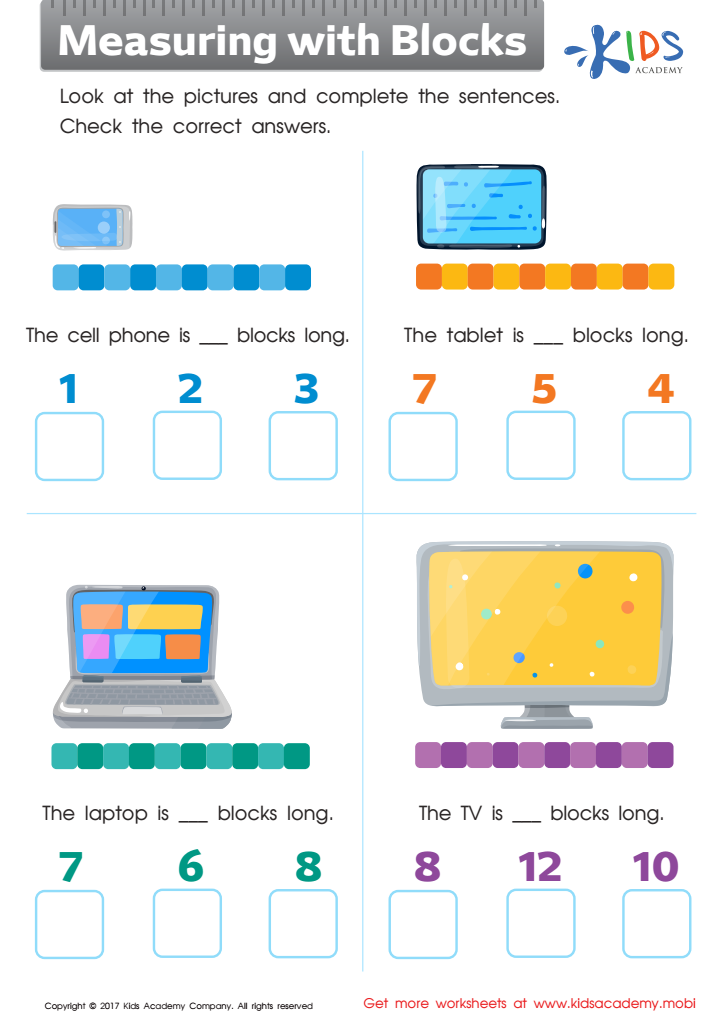

Measuring with Blocks Worksheet
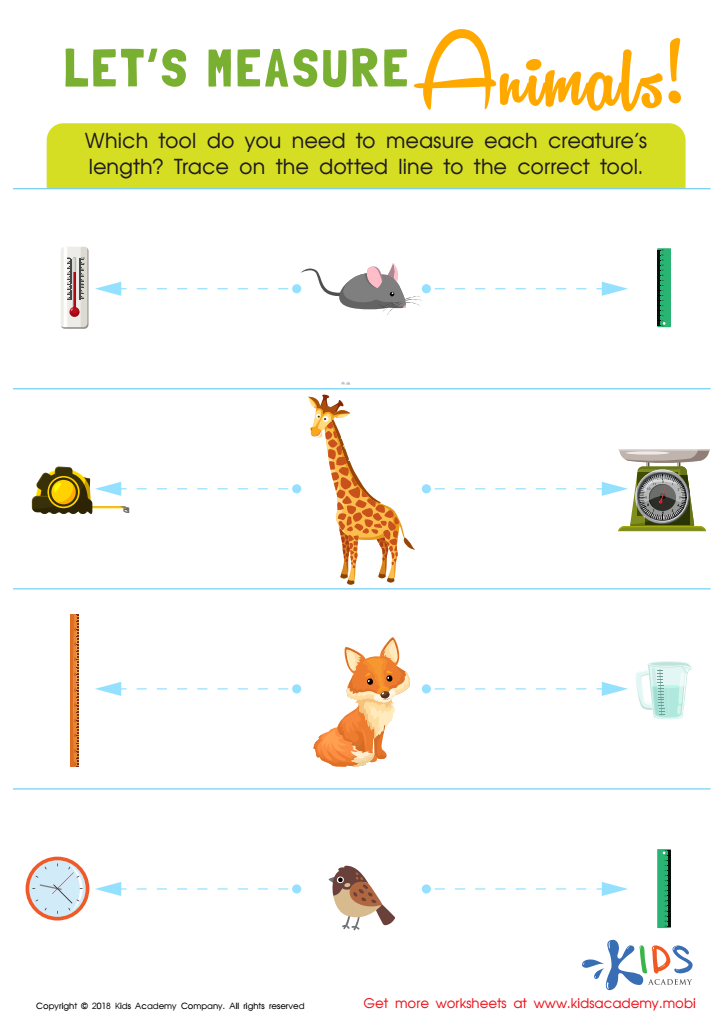

Let's Measure Animals! Worksheet
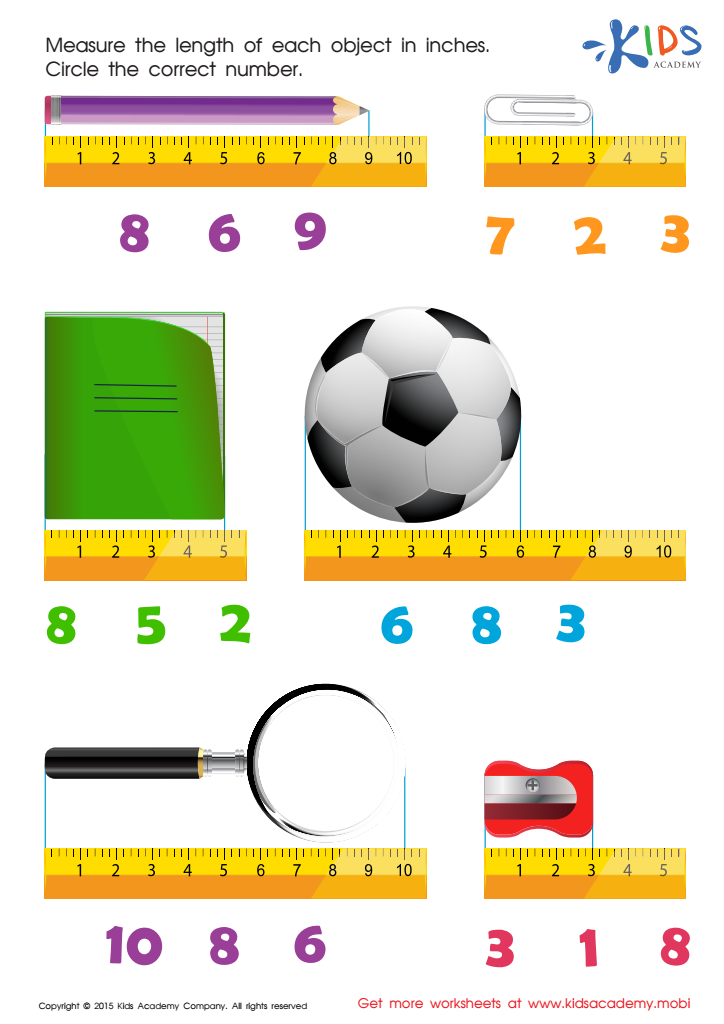

Learning measuring objects in inches Worksheet
Comparing lengths is a fundamental mathematical skill that plays a crucial role in the development of young children, particularly those aged 3-9. Understanding measurement enhances cognitive development and lays the groundwork for future math concepts. When children learn to compare lengths, they sharpen their observational skills, which are important for critical thinking and logical reasoning.
For parents and teachers, fostering this skill can lead to significant learning opportunities. Engaging children in activities like measuring objects around them helps solidify their understanding of relative sizes, fostering both language development and numerical literacy. Moreover, it makes learning dynamic and fun, encouraging curiosity and exploration in everyday life.
Involving children in comparisons, such as "which is longer?" or "how much longer is this?", develops their ability to think analytically and express quantitative reasoning verbally. This skill set is vital as they progress academically, forming a solid foundation for more complex mathematical concepts in later years.
Integrating tools like rulers, yardsticks, or even exploring concepts through play can optimize learning outcomes. Ultimately, by prioritizing comparing lengths measurement, parents and teachers support children's overall development while instilling a love for learning, setting the stage for future academic success.
 Assign to My Students
Assign to My Students






















